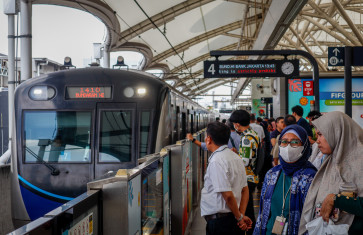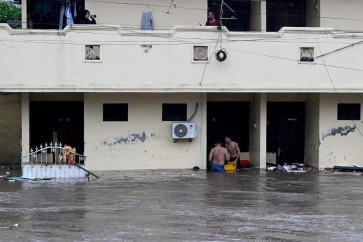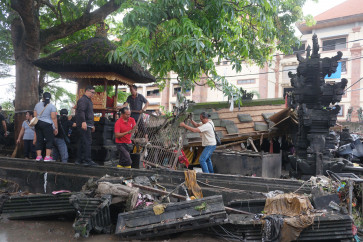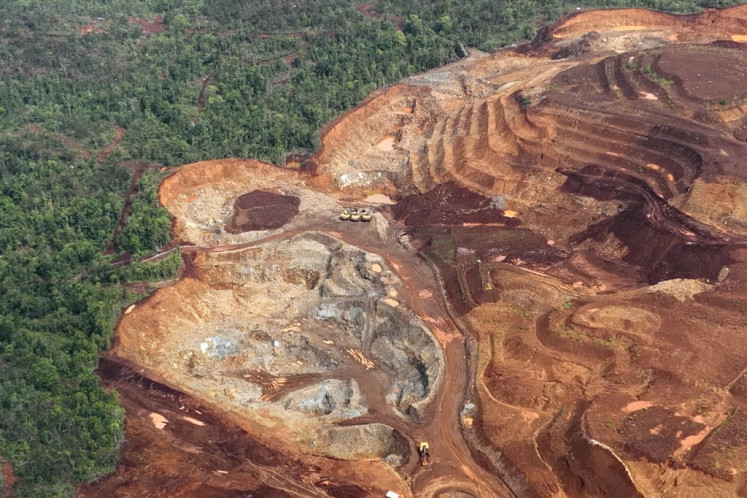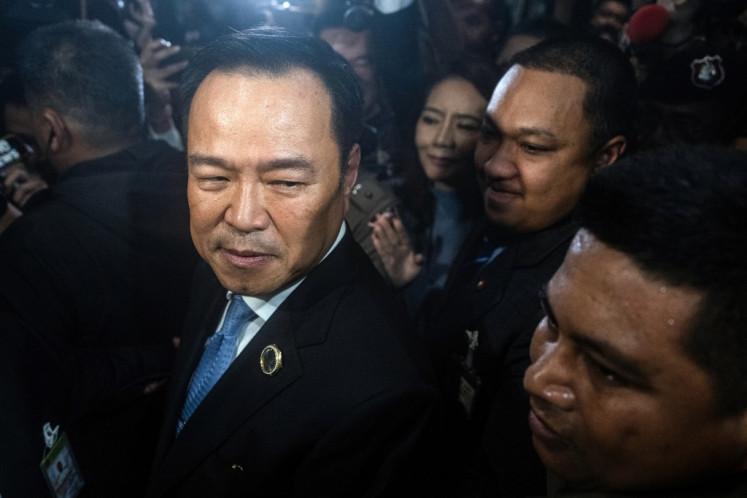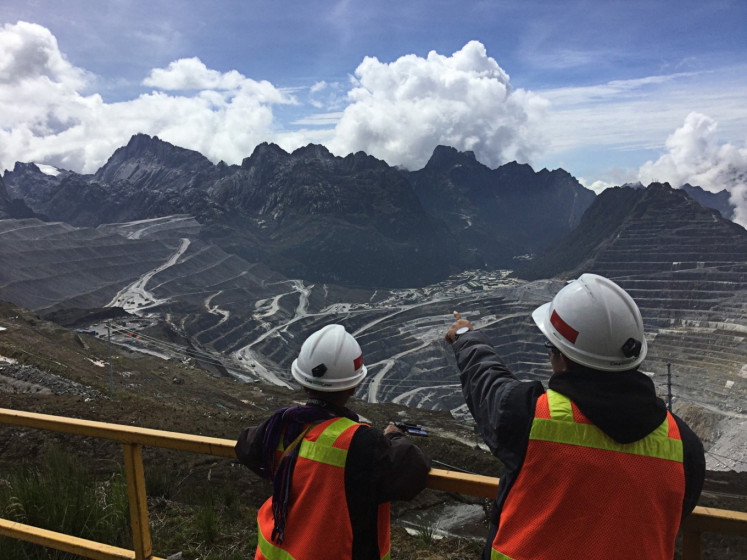Popular Reads
Top Results
Can't find what you're looking for?
View all search resultsPopular Reads
Top Results
Can't find what you're looking for?
View all search resultsPurwakarta: A window into Sundanese pride
Grandeur: The roof ridges of Purwakarta regency administration center, the Pendopo, are illuminated at night
Change text size
Gift Premium Articles
to Anyone
G
span class="caption">Grandeur: The roof ridges of Purwakarta regency administration center, the Pendopo, are illuminated at night.(Courtesy of Purwakarta Public Relations Office)
Purwakarta is reclaiming its former grandeur from the Dutch colonial era by providing more public facilities and an emphasis on Sundanese culture to attract more visitors.
It may not be as vast as the dancing water fountain in Burj Khalifa, Dubai, or as magnificent as Singapore's Songs of the Sea, but the Sri Baduga Water Fountain Park is by far the largest in Southeast Asia.
The latest tourism endeavor has sprung up in Purwakarta regency, West Java, less than two hours' drive from Jakarta in the usually heavy traffic along the Cipularang toll road.
The fountain is installed right in the center of Purwakarta's landmark, Situ Buleud, literally meaning the Round Lake, taking its name from its shape.
The 4-hectare man-made lake was constructed during the Dutch colonial time from an abandoned rhinoceros pool after the animals' habitat gave way to human settlement over a century ago.
The soft opening of the park was held a week ago to mark the completion of the second stage of its construction, with thousands of visitors attending the ceremony despite the rain.
No fewer than 2,000 water nozzles shoot and spray synchronized dancing water, beautified with streams of light in rainbow colors and laser play, to form images of a man and woman dancing.
For the final stage of construction, more nozzles will be added to spray water from the mouths of the four white tiger statues at the center of the fountain and along the entrance walkway.
An aqua screen system will be installed to display the animation of historical tales of the old Padjadjaran kingdom and King Sri Baduga Maharaja, more popularly known as Prabu Siliwangi, as well as the story of Purwakarta past and present.
A platform that can accommodate 2,500 visitors will be raised to face the fountain while 5,000 tribune seats are to be constructed around the park.
Six digital info kiosks will be set up and purveyors of Purwakarta cuisine and handicrafts will also be in business around the park.
The last construction phase will cost the regency Rp 50 billion (US$3.6 million) to be added to a total of Rp 150 billion for the whole project.
Although the fountain park is touted as the pride of Purwakarta because the installation and the accompanying musical arrangements are being handled by local talent ' 44-year-old Hery Sugihardi and his 17-year-old music-prodigy son Mohammad Sonny ' the project is not without its critics.
'They say that it's a waste of the regional budget but they fail to see how these tourism sites can help us to generate income from tourism in the future. Even today we can see high rates of hotel occupancy on weekends. And right now I have on my desk permit requests to open four more hotels,' Purwakarta Regent Dedi Mulyadi said after the ceremony on Jan. 9.
Cultural exhibits: The collection of Bale Panyawangan digital museum also includes Sundanese artefacts such as wayang golek (wooden puppets).
The old town, which used to host managers of Dutch coffee plantations, was the venue for historical events during the country's struggle for independence. It had lost some of its charm as a resort soon after the Cipularang toll road (an acronym of Cikampek, Purwakarta and Padalarang), connecting Jakarta with West Java's capital Bandung, started operating in 2005.
Under the administration of Dedi, a nonpartisan politician elected in 2008 at the age of 37 and currently in his second term of office, Purwakarta is turning into a cultural city that embraces the old beliefs of the Sundanese people ' the natives of West Java.
This is immediately apparent from the sculptures of figures and animals from Sundanese mythology and the black-and-white checkered fabric, which embodies the Wiwitan philosophy of human relations with the environment, throughout the town.
Backed by local elders, Dedi, who regularly wears traditional outfits and goes barefoot to abide by the old customs, has also reintroduced the 'sampurasun' greeting and the Sundanese alphabet.
A digital museum has been established at one of the Dutch-heritage buildings Gedong Kembar (Twin Houses) that allows visitors to cycle for an hour while virtually enjoying the scenes of Purwakarta.
With a vision to make Purwakarta the living museum of Sundanese traditional culture, the regent has reestablished the terraced ethnic villages, the first of them in Andir village in Sukatani district, a relocation site for landslide victims. In the future, according to Dedi, they could become a live-in ecotourism site.
The administration office, the Pendopo, has also been renovated with some parts being turned into a public park.
'As a leader of the people, I am an artisan who creates things for the benefit of the residents. I expect other regional leaders to follow suit by creating added value to their own cities and for the central government to provide us with the infrastructure.'
Terraced view: Terraced rice fields are seen from Andir village, a traditional terraced village dedicated to the relocation of landslides victims. The regency plans to have more of such villages to boost tourism.
' Photos by JP/Tertiani ZB Simanjuntak
___________________________________
To receive comprehensive and earlier access to The Jakarta Post print edition, please subscribe to our epaper through iOS' iTunes, Android's Google Play, Blackberry World or Microsoft's Windows Store. Subscription includes free daily editions of The Nation, The Star Malaysia, the Philippine Daily Inquirer and Asia News.
For print subscription, please contact our call center at (+6221) 5360014 or subscription@thejakartapost.com




